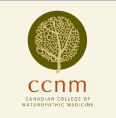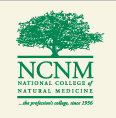
A Naturopathic Perspective on
Celiac Disease and Gluten Intolerance
By Dr. Christine Doherty, N.D.
Naturopathic Doctor | Celiac Disease Expert
Celiac disease is a tricky malady; it’s the “chameleon disease,” as I like to call it. Suffer from constipation? You might have celiac. Bothered by migraine headaches? Try testing for celiac. Having trouble getting pregnant? You get the idea. The problem with this particular illness is twofold. One, although a large number of people carry the potential for celiac disease, it can be triggered by almost any event, medical or otherwise. And two, although it is caused by a common gene, it can manifest itself in a plethora of different symptoms. This variety makes it very difficult to diagnose, and as a result, celiac disease has often been overlooked as a source of illness, at least until recently.
As someone with a Naturopathic approach to medicine, I take care to look at a patient’s “big picture.” Understanding the way in which life’s aspects affect each other can be a huge help in determining what might be causing a patient’s symptoms. This is especially so in the case of celiac disease; this illness has so many potential influencing factors and so many possible manifestations that unless the doctor looks beyond the obvious, it is unlikely that the disease will be accurately diagnosed.
The many faces of celiac disease
So exactly what is celiac disease? Its basis, at least, is fairly simple. Although celiac disease is often represented as a food allergy, this is inaccurate; it is caused by a gene, one that is carried by about 30 percent of the U.S. population. When triggered, this gene causes gluten intolerance. When a person with celiac disease eats a product containing gluten, the body attacks itself with its own immune system (thus qualifying celiac as an autoimmune disease). Simple, right? Not quite.
First of all, there is the issue of the disease’s trigger. Celiac genes are quite widespread; in fact, celiac is one of the most common genetic diseases known to medicine. However, only about one percent of the American population actually has celiac disease, because the genes have to be triggered in order for the disease to manifest. Individuals continue to carry the genes all their lives, which means that they can develop celiac disease at any point. But if the trigger never occurs, the individual may never show signs of the disease.
The trigger for celiac disease can be almost anything: a parasitic infection, a virus, a pregnancy or even an emotional or psychological trauma; anything that causes an individual intense stress. This is part of what makes the disease so hard to diagnose, especially in mainstream medicine. A doctor may not think to connect the recent death of a loved one with the sudden onset of diarrhea in a patient. Because a Naturopathic Doctor (ND) looks at all the overlapping facets of a patient’s life, an accurate diagnosis is more likely to occur.
The variety of celiac disease symptoms, of course, is the other reason that makes the disease so difficult for doctors to pin down. These symptoms can include diarrhea, constipation, bloating, weight loss or weight gain, abdominal pain, migraines, infertility (in both men and women), hair loss, seizures, osteoporosis, cancer and a dizzying array of other health problems.
To further complicate matters, these issues are not the direct result of celiac disease. Rather, they are the result of the body’s autoimmune response. When gluten is ingested by someone with celiac disease, the body reacts by attacking the perceived threat, which damages the lining of the small intestine. The ability of the body to absorb nutrients from food is impaired, resulting in nutritional deficiencies. It is these deficiencies that often cause the symptoms associated with celiac. And because different individuals’ bodies react differently to nutritional stress, the result is a wide variety of symptoms and an increased difficulty in diagnosis.
Gluten, gluten everywhere …
|
|||
|
The doctor of the future will give no medicine, but will interest her or his patients in the care of the human frame, in a proper diet, and in the cause and prevention of disease. Thomas A. Edison US inventor (1847 – 1931)
|
Gluten is a standard ingredient in any product containing wheat, rye or barley. Unfortunately, gluten is found in a wide array of foods that few people suspect: soup broths, sausages, pickles, licorice and soy sauce, for example. As a result, individuals can unknowingly exacerbate their condition, even when they think they’re avoiding wheat products. A cure? Celiac disease has no known cure. There is no pill or shot that will counter its effects. The only way to treat celiac disease is to eliminate all gluten from one’s diet. And in a society where gluten seems to be an ingredient in almost everything, this can be a daunting task.
The Naturopathic approach: the glass is half full.
- Diagnosis.Fortunately, there is some good news. Medical professionals are getting better about actively looking for celiac disease, which means taking the patient’s entire life into account, including any potential triggers. The test for the condition consists of three parts: a blood panel, a biopsy of the small intestine and a trial gluten-free diet. Some NDs perform a portion of this testing in-office, while others will refer you elsewhere to have all of the lab work completed. During testing, the patient must still have gluten in his or her system, or the results will be inaccurate. If the patient responds to the altered diet, there is more good news; he or she will most likely feel significantly better on a continued gluten-free diet.
- Diet. Creating and following a healthy, gluten-free diet plan is crucial for celiac disease patients. Naturopathic Doctors, because of their strong nutritional focus, are the ideal healthcare providers to support patients in reaching and maintaining optimal health through diet control. Additionally, as celiac disease becomes more prominent in the public eye, many food manufacturers are beginning to offer tasty gluten-free options. Once someone with celiac disease stops eating gluten, most of the symptoms will improve or be eliminated altogether within a few weeks, although it can take months for some. If the symptoms do not stop, this may be due to a residual nutritional deficiency.
- Recovery.Remember, it’s not just the celiac disease itself that causes the symptoms; it’s the body’s autoimmune response to the illness and the resulting lack of nutrients. If someone has suffered from celiac disease over a number of years, his or her body has probably been depleted of numerous nutritional requirements. Taking a gluten-free multivitamin, fatty acid supplements, digestive enzymes and probiotics can all help resolve symptoms and speed recovery after diagnosis.
Even after years of celiac disease, an inclusive, Naturopathic approach still makes it possible to return a body to its natural, healthy state. And in my book, that’s definitely reason for optimism! What’s next for you?
- Learn more about celiac disease and gluten intolerance. » www.pointnatural.com/celiac.htm » Read more about Dr. Doherty » E-mail Dr. Doherty
- Or visit a Naturopathic Doctor (ND) in your area to find out if your symptoms could be a result of celiac disease and how you can become well again.
» Find an ND in the U.S.
» Find an ND in Canada














